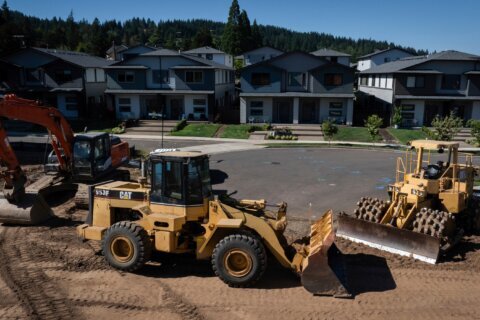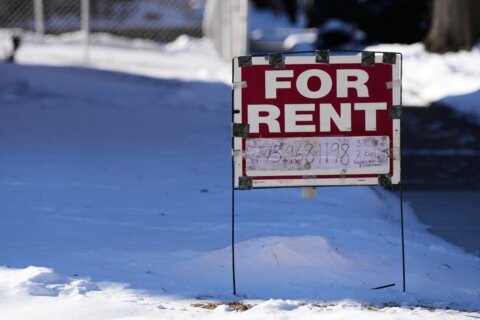Depending on what news bulletin you’re listening to or which economist is talking, the U.S. — and probably the rest of the world — is on the brink of recession at just about any moment. Time and time again, however, the economy has remained steady over the last few years.
Of course, what goes up must come down, and lingering memories make many homeowners concerned.
The Great Recession technically began in December 2007 and ended in June 2009, but many Americans were still dealing with the effects — particularly from the housing market crash — into 2012 and 2013.
[Read: Protecting Your Property: Scams That Put Homebuyers and Homeowners in Danger.]
Some homeowners still haven’t fully recovered, with roughly 5 million homeowners owing more on their home than it’s worth, according to real estate information company Zillow. That’s down from the nearly one-third of homeowners underwater on their mortgage in 2012, when negative equity was at its peak.
On a national scale, real estate has come a long way since those dark days, and home values continue to rise in most major markets and are expected to increase a total of nearly 5.1 percent nationally in 2017, according to Zillow. Low inventory of available homes on the market and a high volume of buyers contribute to the price increases.
But since the economy is now largely flourishing and has been for a few years, people naturally wonder when it will begin to slow and are nervous about how badly they’ll be affected when the next downturn hits.
Fortunately — and hopefully — the history of recessions and current issues that could harm the economy don’t lead many to believe the housing market crash will repeat itself in an upcoming decline.
“When you look back in history, it’s actually quite rare that housing plays a central role in economic downturns,” says Aaron Terrazas, senior economist at Zillow.
Here are three things to know about how the housing market could fare in the next recession, plus what you can do to prepare yourself.
Housing Won’t Be the Problem
According to the third-quarter 2017 Zillow Home Price Expectations Survey released in August, there’s a 52 percent chance the next recession will start by the end of 2019, based on responses from 100 economists, investment strategists and housing market analysts.
Sixty-seven percent of the experts surveyed point to a geopolitical crisis as the cause of recession, a far cry from the lax lending policies and financial liquidity issues that contributed to the Great Recession.
“If a recession is to occur, it is unlikely to be caused by housing-related activity, and therefore the housing sector should be one of the leading sources to come out of the recession,” says Mark Fleming, chief economist for title insurance company First American Financial Corporation.
As Fleming notes, the housing market has traditionally aided the economy in recovering from a recession, as consumers who are less effected by the downturn are willing to buy and sell, and existing homeowners are able to take advantage of equity in their property.
In the midst of a recession where subprime mortgages are not a significant factor — as experts predict they wouldn’t be in the next downturn — it’s reasonable to expect homeowners to stay where they are while things are uncertain and wait to move when they feel more confident, which can help get other parts of the economy moving.
“What’s more likely to happen is people will choose not to sell their home rather than lose money on the sale of their home,” Fleming says. “So that’s why house prices become downside sticky, because people withdraw from the market and say, ‘I’ll just stay put.'”
We Should Always Expect Housing Markets to Ebb and Flow
While housing isn’t expected to be problematic on a national level in the next recession, some markets will likely take bigger hits than others.
Even outside of a large-scale recession, individual housing markets and geographic regions often see peaks and plateaus, rising with demand and then experiencing a downturn once prices go beyond what homebuyers are willing to pay.
“Regional housing market recessions are quite common,” Terrazas says.
Responses from the Zillow survey reveal that most real estate experts expect the San Francisco and Miami areas to be most affected, as well as Los Angeles, New York, San Diego and Seattle.
These real estate markets are fairly representative of the most expensive in the country, which is a big reason consumers can expect home values to drop there more than other places.
In San Francisco, for example, “Buyers are stretched beyond what they can afford,” Terrazas says. “So there’s expectation that as the economy slows down — if people begin to lose jobs, if income growth were to slow — buyers could no longer afford those already high prices.”
But even if there was a dip in home values on a national scale due to a slowing economy, a slight drop wouldn’t instantly lead to foreclosures.
“Housing values can drop somewhat without really affecting the economy because, for the most part, people have an equity — 5, 10, 20 percent [from their down payment] — in addition to anything they’ve built up over time,” Terrazas says. “So they’re not going to be underwater immediately. Home values would have to drop by a large amount for negative equity to come back.”
Homeowners Shouldn’t Worry, as Long as They Can Make Payments
In addition to the equity homeowners have, Fleming notes that the vast majority are also locked into 30-year fixed-rate mortgages, most likely having refinanced during the recent period of historically low interest rates.
With a low interest rate and affordable monthly payments, Fleming says most homeowners are in a good place should the economy slow. If you haven’t refinanced yet, do so as soon as you’re able.
“If you’ve [refinanced] already in the last few years, then doing nothing is the best something you can do,” Fleming says.
Even for those millions of homeowners still underwater from the last recession, Fleming says as long as you’re making your monthly mortgage payments, you don’t need to worry.
“The challenge is when you’re underwater on that mortgage, and then for some reason you lose the ability to make that mortgage payment,” Fleming says.
But that should be a concern all consumers, not just homeowners, take into account. Personal finance resource GOBankingRates surveyed 1,007 U.S. residents on their current financial status and whether they would be prepared for a recession and published the results in June.
Based on answers to questions like “Do you currently have enough money saved to cover six months of living expenses?” and “Does your investment strategy account for a recession?” among others, the survey found that most Americans are unprepared for a recession.
[Read: Facing Foreclosure: What Are My Options?]
Sixty percent of Americans affected by the Great Recession are currently living paycheck to paycheck, according to the survey. What’s more, 68 percent of respondents have no recession investment strategy, and 74 percent are not ready to look for a new job.
Whether you own or rent your home, take the time now, before any sign of a downturn, to build a cushion of savings — between three and six months’ worth of living expenses — on the chance that you lose your job. As long as you can continue to make monthly payments, the recession won’t lead to foreclosure or eviction for you.
More from U.S. News
The 25 Best Affordable Places to Live in the U.S. in 2017
Credit, Mortgages and Your Ability to Buy a Home: It Doesn’t Have to Be Scary
10 Secrets to Selling Your Home Faster
What Will the Housing Market Look Like in the Next Recession? originally appeared on usnews.com







